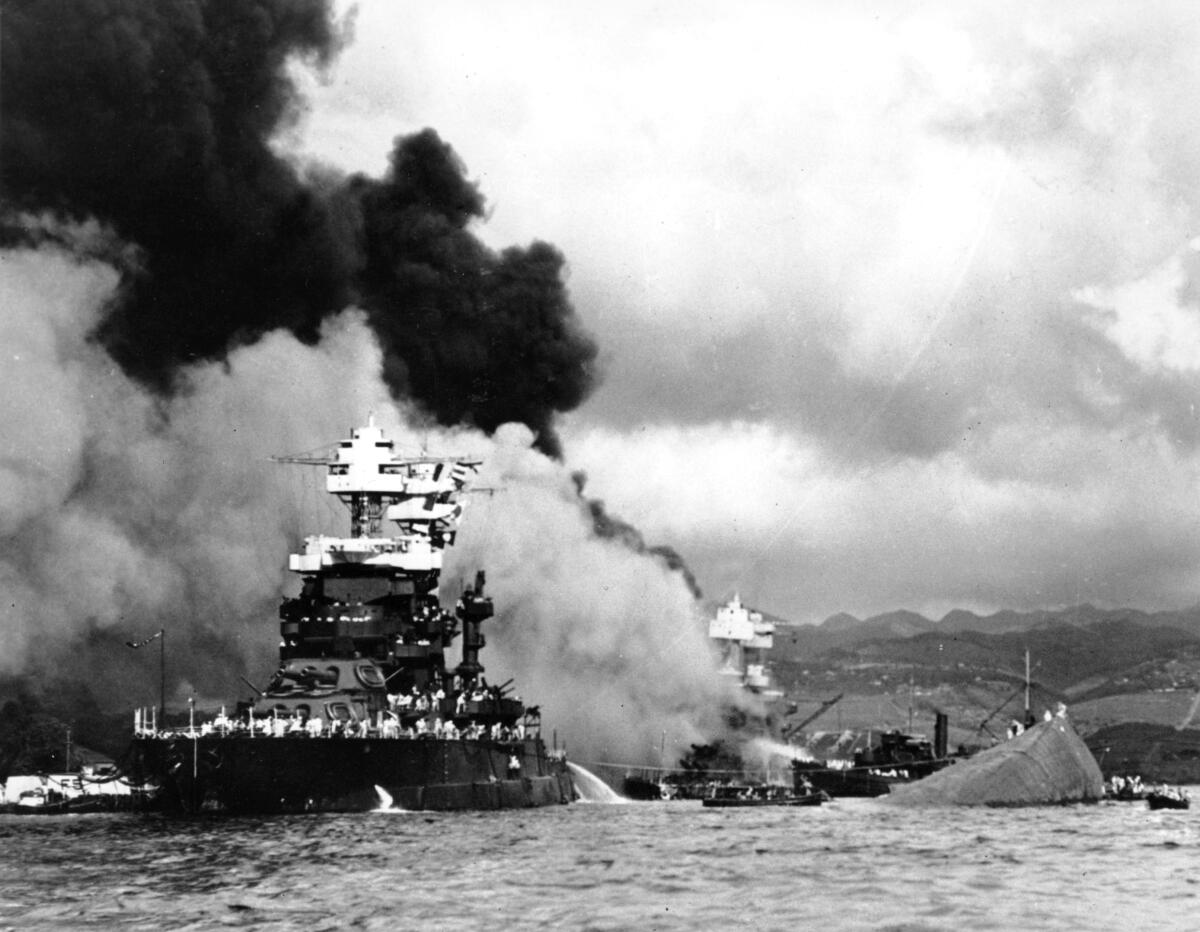Editorial: On this Memorial Day, we hear the echoes of those long dead

- Share via
On May 2, 1916, some 11 months before the United States entered World War I, the USS Oklahoma launched from a shipyard in Camden, N.J., and entered service in the U.S. Navy, operating in the Atlantic Ocean for the first five years (including escorting President Wilson when he sailed to France to take part in peace negotiations). After that it shifted to service primarily in the Pacific and was moored at Pearl Harbor when the surprise attack began that dragged the U.S. into its second world war; Japanese torpedoes shredded much of the ship’s hull and it flipped over, killing some 400 crew members.
That was a long time ago — 80 years, in fact, this coming Dec. 7. But it was just four months ago that the Defense POW/MIA Accounting Agency announced that it had finally identified the remains of one of the sailors whose body was recovered from the Oklahoma after the attack and buried with other unidentified service members from that disastrous day.
His name was Pfc. John F. Middleswart, a Marine from Illinois who enlisted in San Diego in April 1941. He was 19 when he died. Military investigators used DNA samples provided in 2009 by his sister, who died six years ago at age 98, and two nephews to identify the remains. He is to be buried under his own name June 8 at Ft. Rosecrans National Cemetery on Point Loma in San Diego.
This is how the casualties of war echo through the ages. A young man decides to join the U.S. military and through fate winds up dead far from home, with his family going decades knowing the fact of his death, but without a body to bury. Until now.
The family’s loss was a single bereavement among hundreds of thousands of American soldiers who have died in service to this country, some, like Middleswart, killed in combat but many also in accidents or by illness or, perhaps most tragic, by suicide.
Wars are waged among nations but they are fought by individuals, and the public for whom they work often never learns the names of those who die in the effort. In fact, the scope of war blurs the individual sacrifice.
Yes, heroes are rewarded and often careers are made, as is history. As a society we tend to focus on the big picture and the big players — World War II, for instance, and the presidents and generals who waged it.
So 80 years on, the name John F. Middleswart surfaces to remind us of the individual costs of war, and of the pain and suffering endured by the families of the dead. We, as a nation, need to pay more heed to that debt not only as we contemplate our history but also as we navigate our future.
More to Read
A cure for the common opinion
Get thought-provoking perspectives with our weekly newsletter.
You may occasionally receive promotional content from the Los Angeles Times.










